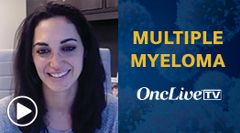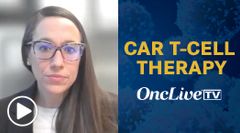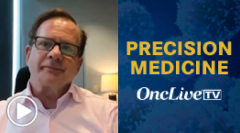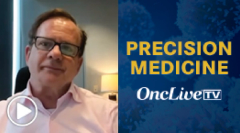
Inside the Clinic: JTCC Experts Highlight Key Takeaways from ASH 2021
David Siegel, MD, PhD, Noa Biran, MD, and David H. Vesole, MD, PhD, discuss key takeaways from ASH 2021.
Episodes in this series

David Siegel, MD, PhD, chief, Division of Multiple Myeloma, John Theurer Cancer Center, Hackensack Meridian Health, Noa Biran, MD, associate professor of medicine, Hackensack Meridian School of Medicine, physician, Division of Multiple Myeloma, John Theurer Cancer Center, Hackensack Meridian Health, and David H. Vesole, MD, PhD, director, Myeloma Research, MedStar Georgetown University Hospital, professor of medicine, Georgetown University School of Medicine, co-chief, Division of Multiple Myeloma, director, Myeloma Research, John Theurer Cancer Center, Hackensack University Medical Center, discuss key takeaways from the 2021 ASH Annual Meeting and Exposition.
In the phase 1b/2 CARTITUDE-1 trial (NCT03548207), patients with multiple myeloma and a median of 6 prior treatments received the CAR T-cell therapy ciltacabtagene autoleucel (cilta-cel; Carvykti). The results showed an overall response rate of 98%, including a stringent complete response rate of 78%. These data are superior to those of other treatment regimens in the setting of advanced, heavily pretreated multiple myeloma, Vesole says.
On February 28, 2022, the
How the results from CARTITUDE-1 will translate to a real-world setting has yet to be seen, notes Biran, who adds similar agents have resulted in manufacturing issues. Factoring in access issues to CAR T-cell therapy, the use of bispecific T-cell engagers might be more practical for some patients, Biran explains. These therapies have also shown meaningful response rates and tolerability, Biran adds.
ASH 2021 was not a pivotal meeting in terms of treatment concepts, despite data reading out with intriguing platforms, Siegel says. In terms of future approaches, the field may see increased treatment consolidation, rather than continuous therapy. Another area of focus will be how to capitalize on periods of disease control to better avoid relapse, Siegel adds.
Checkpoint inhibitors have not advanced in the treatment paradigm for multiple myeloma the same way they have in other branches of oncology, and future studies revisiting those agents represent another potential treatment avenue, Siegel concludes.










































